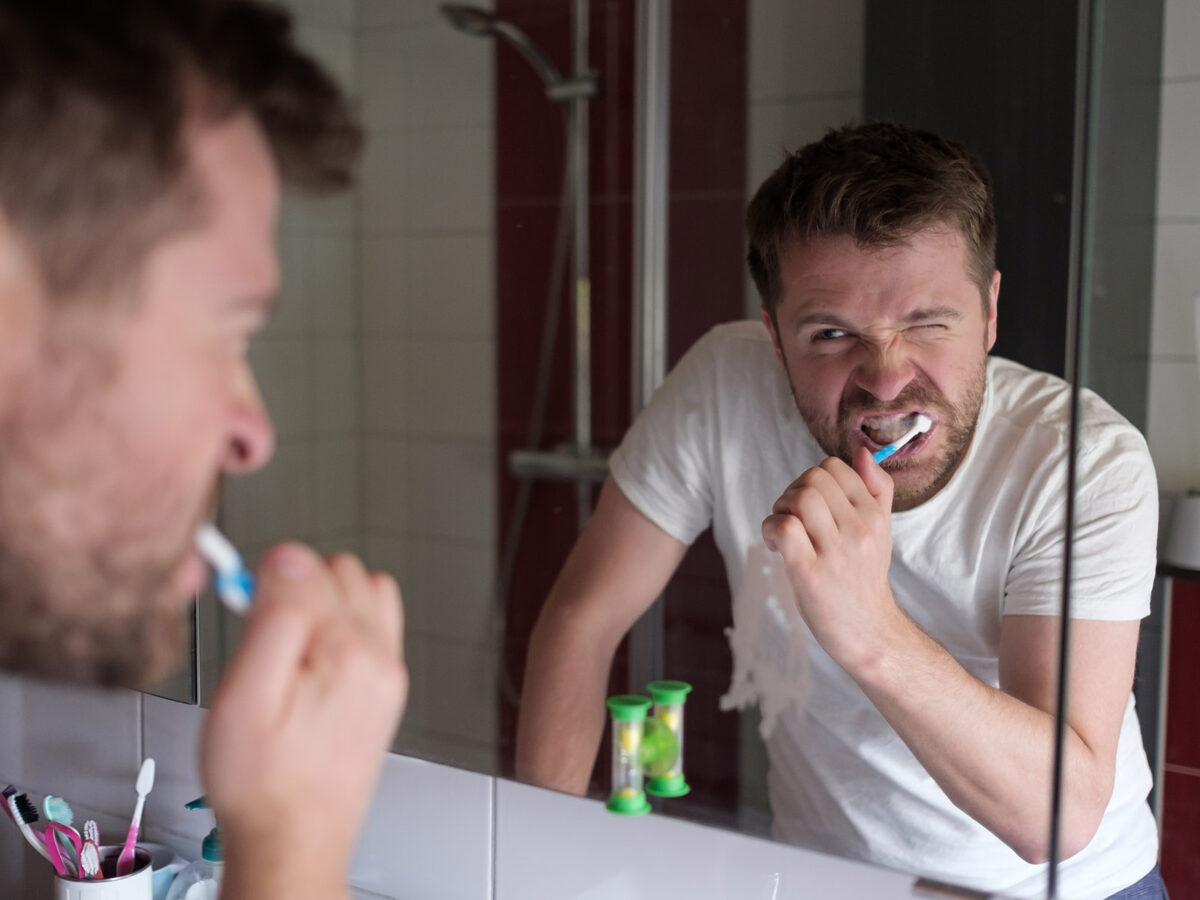Blog
Dental hygiene tips for healthy teeth & gums

Can Brushing My Teeth Too Hard Cause My Gums To Recede?
A radiant smile starts with basic oral hygiene. However, even the best intentions can lead to unintended consequences if not executed correctly. Overbrushing, or brushing with excessive force, is a prevalent dental hygiene mistake. While it might feel thorough, it can lead to gum recession and other dental health issues. This article delves into the importance of gentle brushing and the repercussions of overbrushing.
How Does Brushing My Teeth Too Hard Affect My Gums?
Gum Recession:
Over time, aggressive brushing can cause the gums to pull back, exposing the roots of the teeth—a condition known as gum recession. This not only exposes sensitive tooth roots, leading to discomfort but also makes them more susceptible to decay.
The Importance of Gentle Brushing:
Dentists universally recommend gentle and consistent brushing to safeguard gum tissue. Applying excessive force can irritate and damage the gums, leading to recession.
Consequences of Aggressive Brushing:
Using a hard-bristled toothbrush or applying too much pressure are primary contributors to gum recession. Over time, this aggressive brushing can damage the gum tissue, leaving teeth more vulnerable to decay and other oral health issues.
Damage to Gums and Enamel:
Excessive brushing can easily harm the delicate gum tissue. The repetitive friction from forceful brushing can lead to inflammation and recession. Moreover, the gum recession resulting from this damage can expose sensitive areas of the tooth root.
Root Sensitivity:
When gum recession exposes the tooth root, it can heighten sensitivity to hot, cold, sweet, and acidic foods and drinks. This often results in discomfort or aversion to certain foods and beverages.
Cosmetic Implications of Gum Recession:
Beyond health concerns, gum recession can have aesthetic repercussions. It can make teeth appear elongated, giving the smile an aged appearance.
Preventing Gum Recession:
To prevent gum recession, opt for a soft-bristled toothbrush and use gentle, circular strokes. Ensure your toothbrush is appropriately sized to access all areas of your mouth comfortably.
How to Brush Your Teeth Correctly?
- Hold your toothbrush at a 45-degree angle to your gums and apply light pressure.
- Spend a full two minutes brushing, ensuring you reach the back of your mouth and all chewing surfaces.
- Use fluoride toothpaste twice daily to fortify your teeth and reduce the risk of decay.
- Regular Dental Check-ups: Regular dental check-ups and professional cleanings are essential. During these visits, your dentist can assess the health of your gums and provide guidance on effective brushing techniques.
Conclusion:
Dental care is about striking a balance between thorough cleaning and avoiding undue harm. By scheduling regular check-ups with your dentist, you can receive valuable advice on proper brushing techniques and overall oral health maintenance. With just a few minutes of gentle, mindful brushing each day, you can ensure a lifetime of excellent oral health and a dazzling smile.


